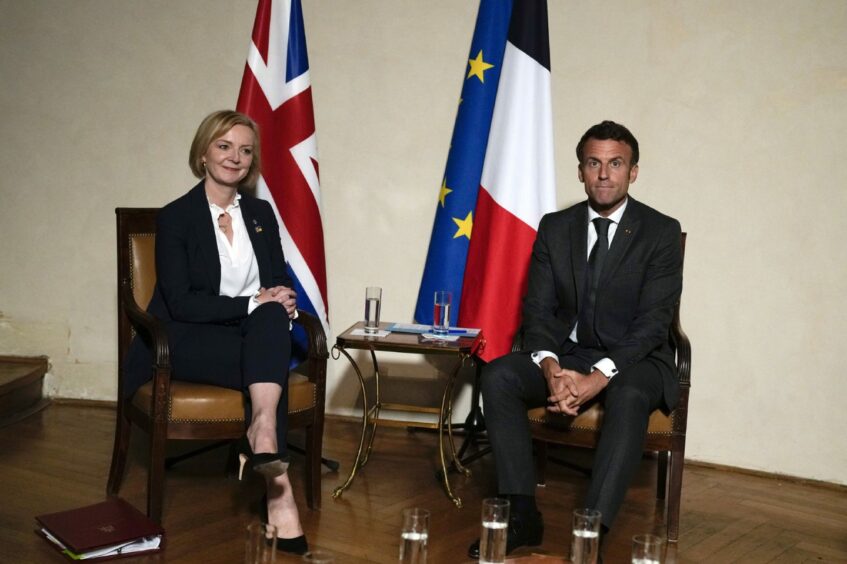
The UK poised to renew links with the North Seas Energy Cooperation (NSEC) group, after relations stalled in the wake of its exit from the bloc.
Liz Truss signalled warming relations with the continent following a summit in Prague this week, with new accords reached to support the development of nuclear and offshore wind.
This includes a renewal of work with the NSEC, a group which supports the deployment of offshore wind and grid development in the region.
Current members include Belgium, Denmark, France, Germany, Ireland, Luxembourg, the Netherlands, Norway, Sweden and the European Commission.
In September, ministers from the consortium agreed to ambitious – if not binding – aggregate targets to build a minimum of 260GW of offshore wind in the region by 2050, with intermediate targets of at least 76GW by 2030 and 193GW by 2040.
The UK is poised to sign a memorandum of understanding (MoU) to work with the NSEC, but cannot be a formal member without signing up to internal market rules.
Meanwhile, Ms Truss met with French President Macron, in which both confirmed their “full support” for long-delayed plans to build a new UK nuclear power station at Sizewell C.
The two are “committed to take all necessary steps to finalise investment decisions within the next month,” according to a statement from Downing Street and will reportedly ramp up co-operation on nuclear development ahead of a planned UK-France Summit in 2023.
Prime Minister Liz Truss said: “The UK will continue to work with our allies to deliver on the British people’s priorities, including ending our reliance on authoritarian regimes for energy and reducing costs for families, tackling people smuggling gangs, and standing up to tyrants.”
Mr Macron said the co-operation marked “a new phase of our common relation.”
“Having the UK being engaged in a lot of common initiatives makes sense, because we share the same continent. We have a lot of challenges in common,” he added. “Our willingness is clearly to work together for the unity of our continent.”
Ms Truss also highlighted strengthened energy partnerships with Norway and discussions with Norwegian Prime Minister Jonas Støre.
It came as London-based Neptune Energy said it would increase production at the Duva field to direct more gas to UK consumers.
